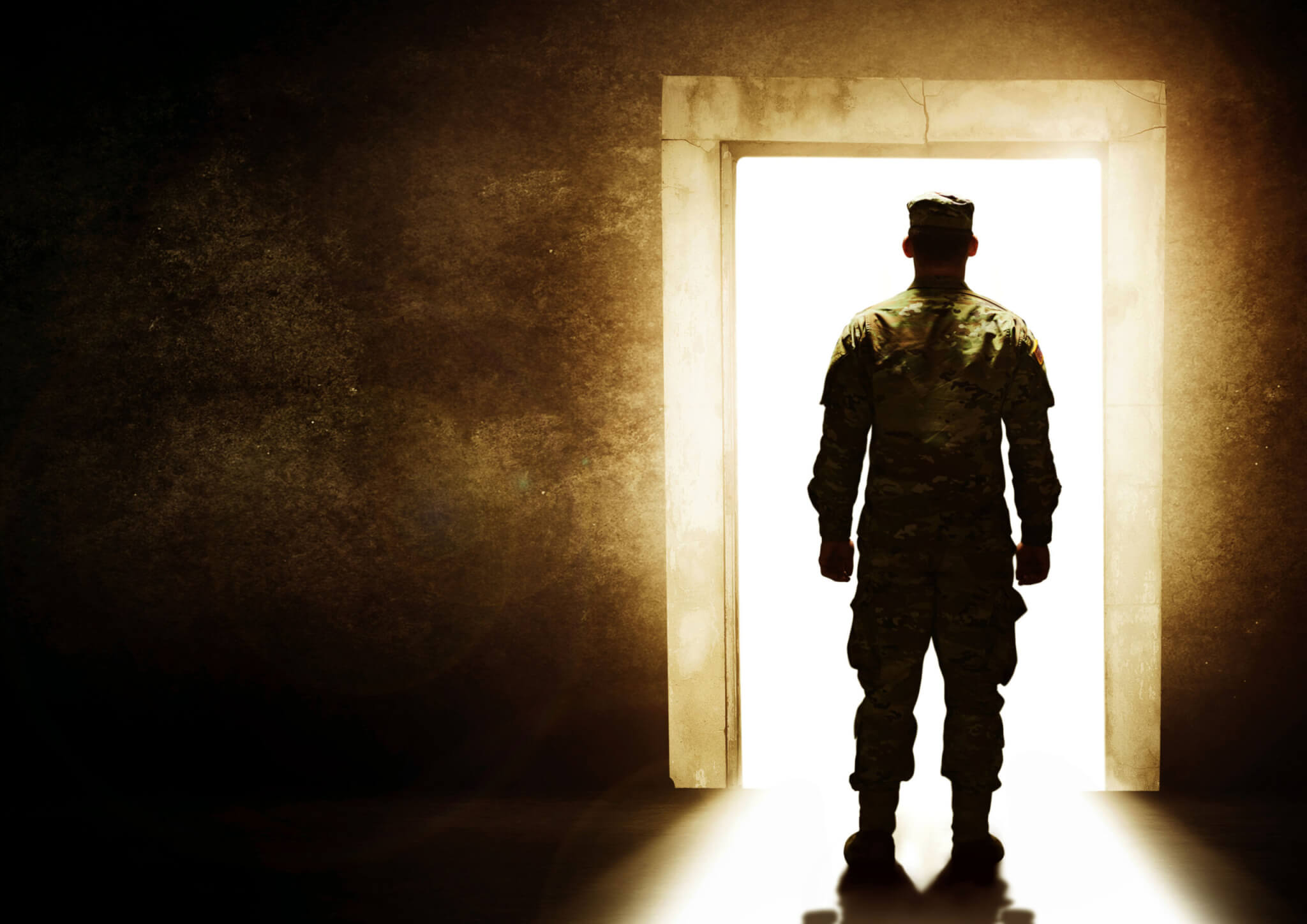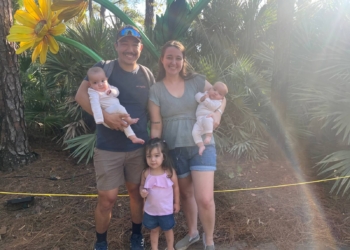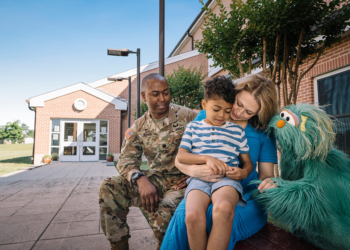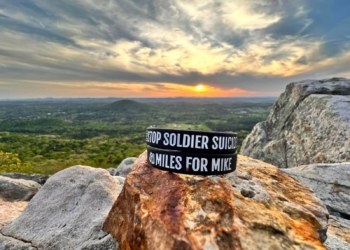Research shows that as many as 62% of veterans struggle with some aspect of reentering society up to six years after receiving their DD-214. Dr. Trina Clayeux, CEO of Give an Hour — a national organization focused on mental health support, has seen veterans struggle with losing identity and purpose, uncertainty in their civilian career trajectory, and an overall hit to mental wellbeing. The Air Force wife has long heard the words “resilience” and “adaptability” in the military community, but they can also be the catalyst for the team effort in recognizing that a service member or veteran is struggling.
Those strong military ties are “why at Give an Hour we place such emphasis on genuine connection and community as part of the transition process — it is significant in reducing feelings of isolation and promoting better mental health,” said Clayeux, who has a doctorate in leadership studies. “There is something profoundly powerful about witnessing the instant connection that forms between those who have served when they meet someone who has also served.”
Rodger Pinto is an associate of Policy & Advocacy at Iraq and Afghanistan Veterans of America (IAVA), a nonprofit that advocates on behalf of post-9/11 veterans through Washington policy. He further discussed the benefits of connection for transitioning service members.
“We often see that those who proactively seek support connecting with peer groups, mental health resources, employment programs and the VA adapt more quickly,” Pinto, an Army veteran, said. “However, some veterans take years to fully adjust to civilian life, especially those dealing with complex trauma and injuries like toxic exposure.”
Reintegration is “certainly not a one-size-fits-all or linear experience,” Clayeux explained. “Transitioning to civilian life is highly individual and influenced by factors such as personal resilience, available support systems and experiences before and during service.”
Therein lies a crucial point in helping veterans adapt: being surrounded by “cheerleaders” who can not only offer encouragement and resources, but know when to call in a higher level of help.
“Families should provide emotional support by listening without judgment and encouraging open expression of feelings, helping veterans feel understood and less isolated. Families can also gently suggest professional resources or peer support groups, which can make a significant impact on addressing mental health and adjustment issues,” Pinto said. “Understanding the transition process and common obstacles is crucial, as it equips families to respond with empathy and effectiveness.”
“It’s what family members do so often already by offering emotional encouragement, practical assistance and patience throughout this adjustment,” said Clayeux. “It’s important to recognize and celebrate small wins, promote self-care routines they rely on to manage stress and normalize the challenges of a learning curve — an inevitable part of the process.”
Even with a learning curve, there is still always hope.
“Veterans and their loved ones are some of the most resilient and resourceful individuals, driven by mission and service,” Clayeux said. “With the right connection to support, resources and community, they can overcome even the most daunting of challenges.”
Signs to watch for
According to Give an Hour, if you or your veteran display any of these signs, it might be time to get help:
- Sudden personality shift — are you/they radically different than how you/they used to be, and not for the better?
- Increased agitation — are small, inconsequential things getting to you/them?
- Withdrawal — are you/they pulling back from normal, once-enjoyed activities, groups or people?
- Neglecting self-care — are you/they properly dressed, bathed, shaved, groomed, fed, rested, etc.? Are you/they taking care of basic hygiene and everyday needs?
- Expressions of hopelessness — “It’s never going to get better” or “What good am I anyway?” are significant red flags.
Visit the U.S. Department of Veterans Affairs’ website for more information on veteran mental health care.
Read comments








































